Welcome to our blog post about the latest innovation in telecommunications technology – 5G with Verizon. With the new 5G network, the possibilities for connected devices and applications are endless.
From lightning-fast download speeds to low latency communication, the 5G network is poised to revolutionize how we live, work and play. In this blog post, we’ll explore just how powerful 5G truly is and how Verizon is leading the charge in bringing this game-changing technology to its customers. So buckle up and get ready to unleash the power of 5G with Verizon!
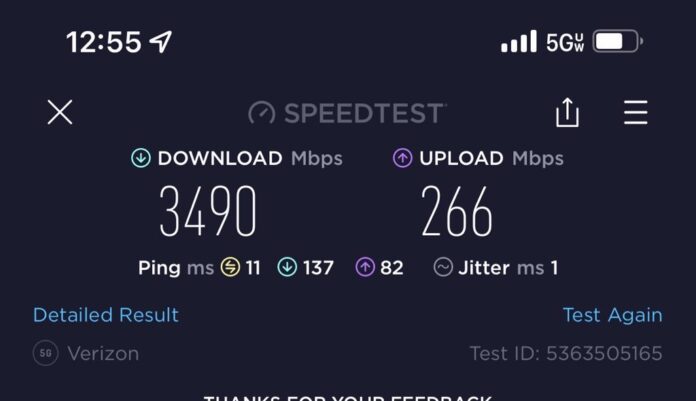
1. Verizon's Installation of mmWave-based 5G Towers
Frequently Asked Questions (FAQs):
Q: What is the significance of Verizon's installation of mmWave-based 5G towers?
A: Verizon's installation of mmWave-based 5G towers enables the company to deliver ultrafast speeds to customers in urban areas. mmWave-based 5G technology operates on a high-frequency band and offers faster speeds, more consistent connections, and improved capacity.
Q: What is the difference between mmWave-based 5G technology and other types of 5G technology?
A: mmWave-based 5G technology operates on a higher frequency band than other types of 5G technology, which allows for faster speeds but shorter range. Other types of 5G technology operate on lower frequency bands and offer longer range but slower speeds.
Q: Where can customers expect to see Verizon's mmWave-based 5G towers?
A: Currently, Verizon's mmWave-based 5G towers are located in urban areas, particularly in dense cities where there is a high demand for faster speeds and improved connectivity.
Q: How does Verizon's 5G technology differ from previous cellular technologies?
A: 5G technology delivers faster upload and download speeds, more consistent connections, and improved capacity compared to previous cellular technologies. Additionally, Verizon's mmWave-based 5G technology offers even faster speeds and improved overall performance.
Q: Is Verizon's 5G technology available for all customers?
A: While Verizon's 5G technology is currently available in select urban areas, it is not yet widely available to all customers. The company is continuing to expand its 5G network and hopes to make it available to more customers in the future.
Q: How does mmWave-based 5G technology impact other wireless services?
A: mmWave-based 5G technology operates on a high-frequency band that is not used by other wireless services, such as aviation services. Therefore, it can be safely implemented without any disruption to other wireless services.
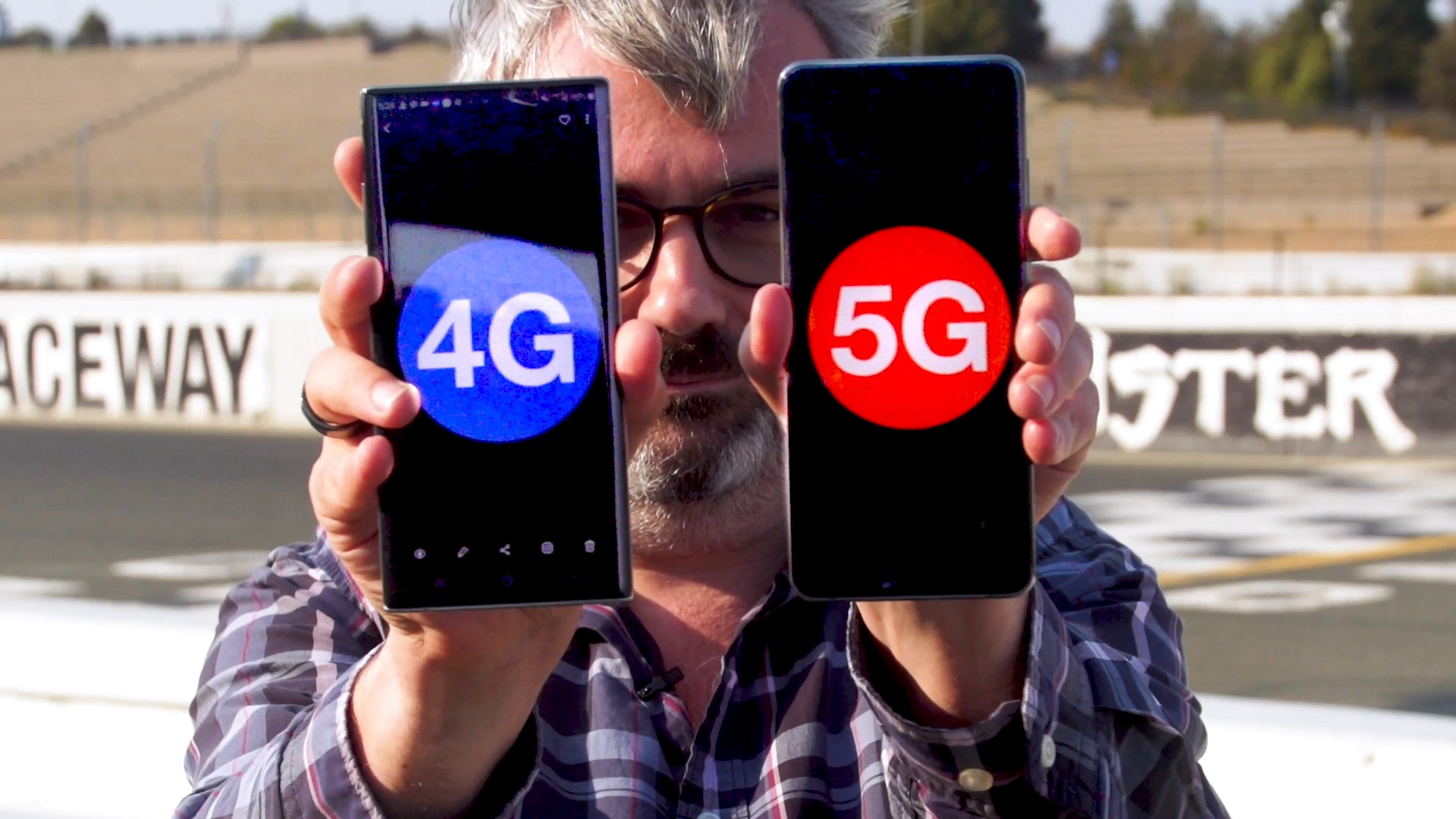
2. Ultrafast 5G Cells in Public Spaces
2. Ultrafast 5G Cells in Public Spaces FAQ
Q: What are ultrafast 5G cells?
A: Ultrafast 5G cells are the cellular stations that transmit and receive data for the 5G network. These cells use mmWave technology, which enables faster and more efficient data transmission.
Q: What are public spaces?
A: Public spaces are areas where people gather, such as parks, plazas, and shopping centers. These spaces often have high demand for data usage, and 5G cells can help meet that demand.
Q: Why are 5G cells being installed in public spaces?
A: Installing 5G cells in public spaces ensures that users have access to fast and reliable 5G coverage when they are in areas with high demand for data usage. This means that users can stream videos, use apps, and browse the web at speeds that were not possible with 4G.
Q: How will ultrafast 5G cells improve the user experience in public spaces?
A: Ultrafast 5G cells will significantly improve the user experience by providing faster download and upload speeds, lower latency (delay), and increased capacity than 4G networks. This means that users can download large files in seconds, stream high-quality video without buffering, and use virtual and augmented reality applications with ease.
Q: What are some examples of public spaces that have ultrafast 5G cells installed?
A: Examples of public spaces that have ultrafast 5G cells installed include sports arenas, concert venues, airports, and college campuses in select locations. More public spaces are expected to have 5G cells installed as the technology continues to roll out.
Q: What are the potential benefits of 5G cells in public spaces beyond faster data speeds?
A: 5G cells in public spaces have the potential to support new innovations in areas such as transportation, public safety, and healthcare. For example, autonomous vehicles can use 5G to communicate with one another and the surrounding infrastructure for safer travel. Additionally, emergency responders can use 5G to access critical information quickly and improve response times.
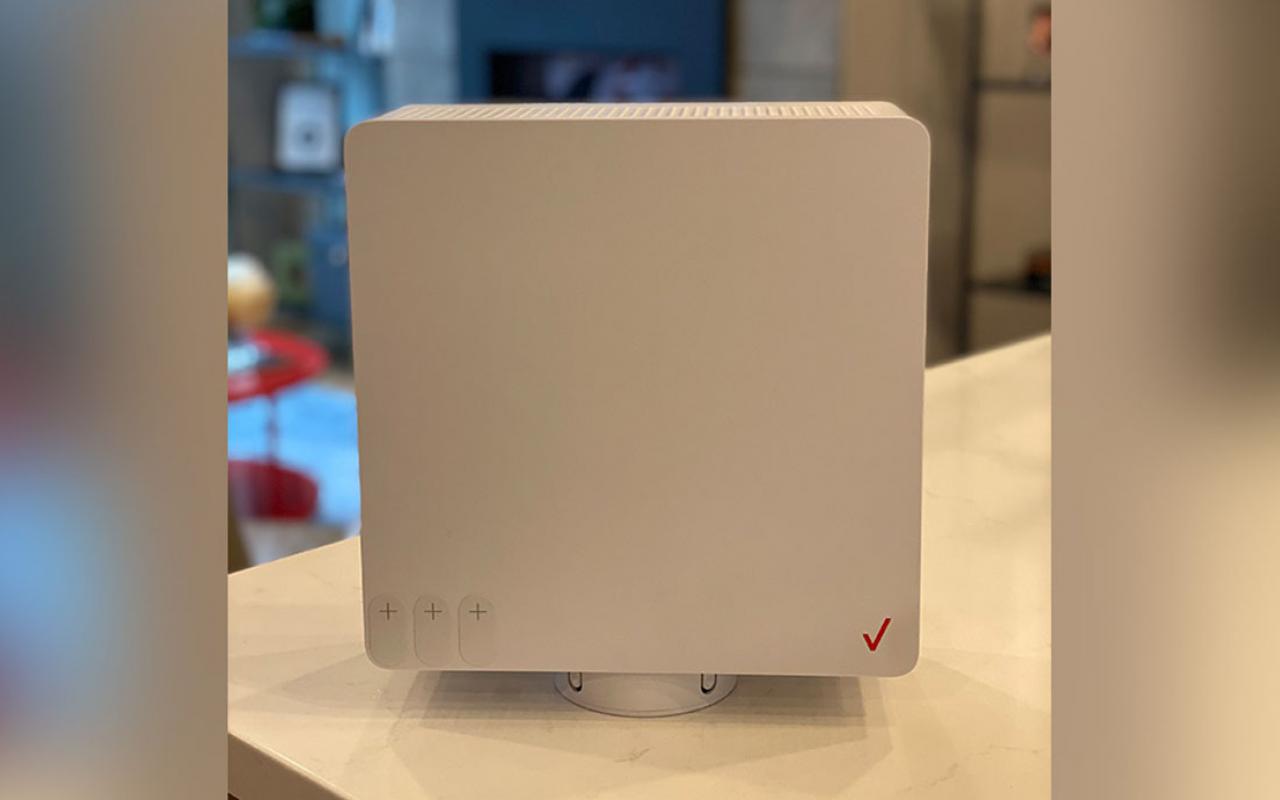
Related post:
- Best Verizon 5G Business Internet Deals
- Bring the power of Verizon 5G to your organization - New!
- Customer Service: How to Address Issues with Your Verizon 5G Home Internet
- Exploring the Benefits of Verizon 5G Business Internet
- How Verizon 5G is Transforming Business - New!
- Pricing: Is Verizon 5G Home Internet Affordable?
- Speed and Performance: How Fast is Verizon 5G Home?
- Unleash Business Potential with Verizon 5G Internet
- Verizon 5G
- Verizon 5G Business Internet - experiences the future of business internet
- Verizon 5G Home Internet Review
- Verizon 5G Internet for Business
- Verizon 5G is the next generation of internet - New!
- Verizon 5G: The Future of Business Internet
- Verizon Wifi
- Verizon Wireless Basic Plan
3. The Speed of Verizon's 5G Network
Possible FAQ blog section:
Verizon's 5G network promises to deliver ultrafast speeds for various applications, from streaming videos to powering smart factories. Here are some commonly asked questions about the speed of Verizon's 5G network, along with answers based on factual data.
Q: How fast is Verizon's 5G network?
A: Verizon's 5G network can provide different speeds depending on the type of service and location. For example, Verizon's 5G Home Internet plan can reach download speeds of up to 300Mbps, 500Mbps, or 940Mbps, depending on the plan and coverage. Verizon's 5G Ultra Wideband network, which uses mmWave-based technology, can deliver download speeds of up to 2Gbps in some areas, although the average speed may vary between 300Mbps and 1Gbps.
Q: Are the speeds of Verizon's 5G network consistent?
A: No, the speeds of Verizon's 5G network can vary depending on many factors, including distance from the cell tower, signal strength, network congestion, weather conditions, and device compatibility. For example, Verizon's 5G Ultra Wideband network may provide faster speeds in dense urban areas or venues with many users, while its 5G Nationwide network may offer wider coverage but slower speeds in some regions.
Q: How does the speed of Verizon's 5G network compare to 4G LTE?
A: Generally, Verizon's 5G network offers faster speeds than its 4G LTE network, although the differences may vary. For example, a recent speed test in Minneapolis showed that Verizon's 5G download speeds reached 917Mbps, which is more than three times the average speed of its 4G LTE network. Similarly, Verizon's 5G Home Internet plan can provide speeds up to 5 times faster than most DSL or cable broadband services.
Q: What can you do with the speed of Verizon's 5G network?
A: With the ultrafast speeds of Verizon's 5G network, you can enjoy many benefits, such as seamless streaming of 4K or HD videos, faster download and upload of large files, smoother gaming with low latency and high bandwidth, and improved productivity and collaboration with cloud-based apps and virtual meetings. Additionally, 5G networks can enable new use cases, such as remote healthcare, augmented reality, virtual reality, and autonomous vehicles, which require low latency and high capacity.
Q: What are the limitations or challenges of Verizon's 5G network speed?
A: Although Verizon's 5G network is designed to provide faster and more reliable speeds than previous wireless technologies, there are some limitations or challenges that may affect the user experience. For instance, the coverage of Verizon's 5G Ultra Wideband network is still limited to some areas and may require more cell sites to achieve seamless connectivity. Also, the indoor penetration of 5G signals may be weaker than that of 4G LTE, which means that users may need to use Wi-Fi or other technologies to extend the network coverage or improve the signal strength. Finally, the pricing of Verizon's 5G services may be higher than its 4G LTE plans, although some promotions or discounts may apply.

4. The Potential of 5G for Smart Factories
4. The Potential of 5G for Smart Factories
With Verizon's mmWave-based 5G network, smart factories could revolutionize the way they operate. Here are some FAQs about the potential of 5G for Smart Factories:
Q: What is a smart factory?
A: A smart factory is a highly automated and connected industrial facility that leverages digital technologies like the Internet of Things (IoT), artificial intelligence (AI), and data analytics to optimize operations and enhance productivity.
Q: How can 5G benefit smart factories?
A: With its ultrafast speeds and low latency, 5G can enable real-time communication between machines and devices, allowing for faster decision-making, reduced downtime, and increased efficiency. It can also support large-scale IoT deployments, making it easier to connect and manage thousands of sensors and devices.
Q: What are some use cases for 5G in smart factories?
A: 5G can enable a range of applications in smart factories, including predictive maintenance, quality control, asset tracking, and safety management. For example, with 5G, factory managers could remotely monitor equipment and diagnose issues before they cause downtime. They could also leverage real-time data analytics to optimize production processes and reduce waste.
Q: Is 5G secure for smart factories?
A: Yes, 5G offers robust security features like encryption and authentication to protect data and devices. In addition, Verizon provides end-to-end security services that help businesses manage risk and comply with regulatory requirements.
Q: How can businesses get started with 5G for smart factories?
A: Businesses interested in leveraging 5G for smart factories can work with Verizon's team of experts to design and deploy a customized solution that meets their unique needs. Verizon offers a range of services, including network planning, device management, and professional services, to ensure a successful transition to 5G.
As we look to the future, the potential for 5G in smart factories is vast. With its ability to enable real-time data sharing and analysis, 5G is poised to transform the manufacturing industry and drive growth and innovation for years to come.

5. 5G's Support for the Internet of Things (IoT)
5. 5G's Support for the Internet of Things (IoT)
FAQ:
1. What is the Internet of Things (IoT)?
The Internet of Things (IoT) is a network of smart devices that are connected to each other and can communicate over the internet without the need for human intervention.
2. How does 5G support IoT?
5G is the latest mobile communication technology that is designed to support IoT. It offers faster data transfer speeds, wider bandwidth, and lower latency, which are essential for seamless and reliable communication between IoT devices.
3. How can 5G benefit the manufacturing industry?
Manufacturing companies can take advantage of 5G to improve their operational efficiency, reduce downtime, and increase productivity. By integrating IoT devices into their production processes, manufacturers can monitor and control their equipment in real-time, identify problems before they occur, and optimize their workflows.
4. What are the potential applications of 5G-supported IoT in smart cities?
Smart city initiatives rely heavily on IoT to improve their transportation, utilities, and public services. With 5G, cities can deploy large-scale networks of low-power sensors that can monitor and manage traffic, waste disposal, water management, and air quality.
5. Can 5G be used as an ISP?
Yes, 5G can be used as an alternative to traditional broadband internet service providers (ISPs). With higher data transfer speeds and lower latency, 5G can provide faster and more reliable internet connectivity, especially in areas where traditional ISPs are unavailable or unreliable.
6. When will 5G-supported cars be available in the market?
Several automakers have already started experimenting with 5G-supported connected cars. It is expected that 5G will enable more advanced vehicle-to-vehicle (V2V) and vehicle-to-infrastructure (V2I) communication, which will lead to safer and more efficient driving experiences. However, it may take a few more years before 5G-supported cars become widely available in the market.
In conclusion, 5G is poised to transform the way IoT devices communicate with each other, paving the way for smarter and more connected cities, factories, and homes. With faster data transfer speeds and lower latency, 5G will open up new opportunities for businesses to improve their operational efficiencies and enhance their customer experience.
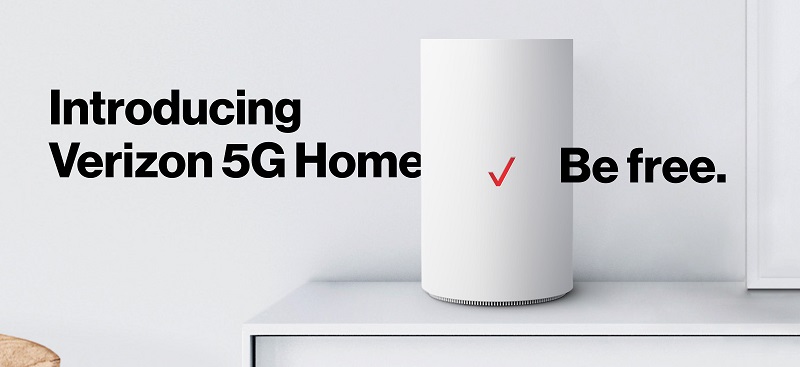
6. The Use of 5G as an ISP
6. The Use of 5G as an ISP
Are you tired of dealing with complicated setup processes and annual contract fees for your home internet service? Look no further than Verizon's 5G Home Internet, which operates as an internet service provider (ISP) powered by Verizon's 5G hyperband technology.
But what is an ISP? An internet service provider is a company that offers internet access to its customers. With 5G Home Internet, Verizon is utilizing its 5G network to bring high-speed internet directly to your home. And the best part? There are no annual contracts or extra fees to worry about.
But what technology is required to use 5G as an ISP? Customers will need a 5G-supported modem, such as the 4G LTE Broadband Modem (LM1200) or the Verizon Jetpack MiFi 8800L, which can be purchased through Verizon. These modems will allow you to connect your devices to the internet and take full advantage of the ultrafast download speeds.
In addition to its use as a home internet service, 5G technology has the potential to revolutionize various industries, including smart factories and the internet of things. With its ultrafast download and upload speeds and minimal latency, 5G can transform the way we work and interact with technology.
As Verizon continues to expand its 5G network and offer commercial 5G networks for home use, the possibilities of what this technology can do are endless. So, are you ready to unleash the power of 5G as your ISP and experience the future of high-speed internet?

7. Verizon's Launch of Commercial 5G Networks for Home Use
7. Verizon's Launch of Commercial 5G Networks for Home Use
With the recent launch of Verizon's 5G Home network, many consumers are curious about how compatible it is with their home-based devices and services. Here are some FAQs to address your concerns.
Q: Can I use my existing modem with Verizon's 5G Home service?
A: No, you will need to use the 5G modem provided by Verizon since it is compatible with the specific frequencies used by its 5G network.
Q: Will my current Wi-Fi router work with Verizon's 5G Home service?
A: Yes, you can connect a Wi-Fi router to the 5G modem to provide wireless connectivity to your devices.
Q: What devices are compatible with Verizon's 5G Home service?
A: Any device with Wi-Fi capability can connect to the 5G network via the Wi-Fi router connected to the 5G modem.
Q: Are there any limitations or data caps with Verizon's 5G Home service?
A: No, there are no limitations or data caps on the service, so you can enjoy ultra-high-speed internet without worrying about incurring additional costs.
Q: Is Verizon's 5G Home service available in my area?
A: The service is currently available in limited areas, but Verizon plans to expand coverage in the future. You can check availability in your area on the Verizon website.
Overall, the launch of Verizon's 5G Home network is an exciting innovation that promises ultra-high-speed internet for home use. With no limitations or data caps, consumers can enjoy seamless connectivity for all their devices and services. As the 5G network continues to expand, we can expect even more benefits and advancements in the near future.
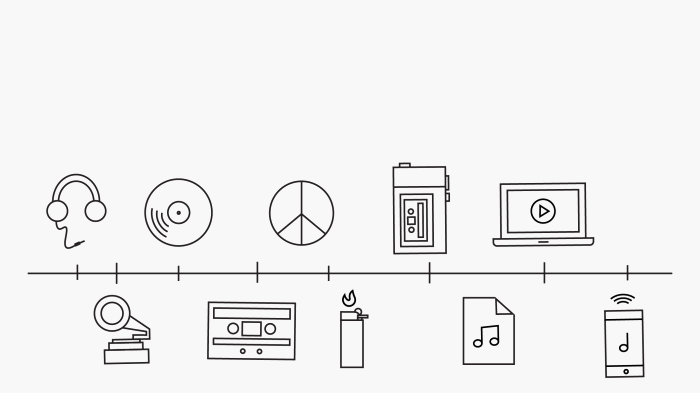
8. The Technology Required for 5G
FAQ Section: The Technology Required for 5G
1. What kind of technology is required for 5G?
Answer: 5G technology requires advanced infrastructure such as mmWave-based 5G towers and ultrafast 5G cells in public spaces. Also required are the use of specific antenna designs for the different cell types and meeting the spectrum requirements between the current LTE frequency band and the millimeter wave (mmWave) bands.
2. How fast is Verizon's 5G network?
Answer: Verizon's 5G network provides ultra-fast internet speeds of up to 10 gigabits per second, which is faster than 4G networks.
3. How can 5G benefit the industry sector?
Answer: 5G has the potential to benefit industries such as smart factories, which can achieve better automation, efficiency, and productivity with 5G's high-speed and low-latency connections.
4. How can 5G support the Internet of Things (IoT)?
Answer: 5G can support a vast number of devices simultaneously, which can improve the connectivity of IoT devices and enable them to function more efficiently. Its network capacity can also provide better communication between devices, making the future of IoT more advanced and efficient.
5. Can 5G be used as an ISP?
Answer: Yes, 5G has the potential to be used as an ISP, providing broadband connectivity to areas where fiber optic cables are unavailable. This can also be useful for remote areas where connectivity has been difficult to achieve.
6. What is Verizon's plan for 5G network development?
Answer: Verizon has already launched commercial 5G networks for home use and continues to work on expanding 5G networks to public spaces and industries. They aim to provide a broader and faster 5G network to their customers.
7. What is the future of 5G-supported cars?
Answer: 5G technology can provide reliable and speedy connections for upcoming autonomous cars by enabling real-time data transfer, enhancing safety measures, and optimizing traffic management. As 5G expands, the potential for future cars to utilize 5G technology is becoming more likely.
Overall, 5G technology requires advanced infrastructure and technology to provide its ultra-fast and low-latency connections, which has the potential to benefit various industries and devices. Verizon is continuing to invest in expanding their 5G network coverage to provide their customers with the next level of connectivity.
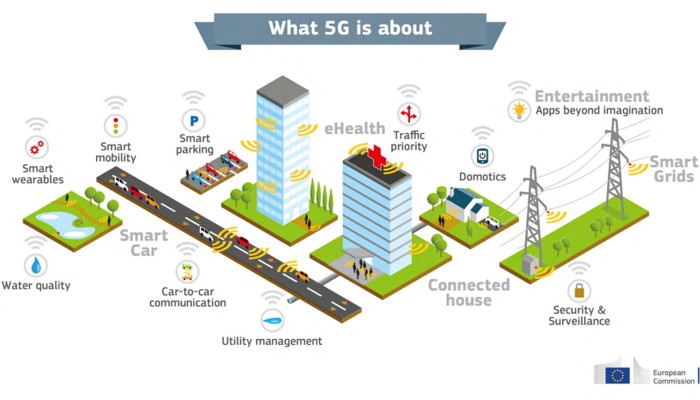
9. The Growth of 5G Wireless Mobile Technology
9. The Growth of 5G Wireless Mobile Technology
With the installation of mmWave-based 5G towers, ultrafast 5G cells in public spaces, and the launch of commercial 5G networks for home use, it's clear that Verizon is at the forefront of the 5G revolution. But what does the growth of 5G wireless mobile technology mean for everyday users?
Q: What is 5G wireless mobile technology?
A: 5G is the fifth generation of mobile technology, offering high speeds and low latency for a seamless mobile experience.
Q: How is Verizon contributing to the growth of 5G technology?
A: Verizon has been investing in mmWave-based 5G towers and ultrafast 5G cells in public spaces, expanding coverage and capacity for 5G users.
Q: What are the potential benefits of 5G technology for businesses?
A: 5G technology promises to unlock new levels of connectivity and capabilities, enabling businesses to be more efficient and productive.
Q: How does 5G support the Internet of Things (IoT)?
A: 5G technology offers the scalability and low latency necessary to support the thousands of interconnected devices that make up the IoT.
Q: Can 5G be used as an ISP?
A: Yes, 5G has the potential to serve as an ISP, offering wireless broadband to homes and businesses.
Q: What is the future of 5G-supported cars?
A: 5G technology is expected to play a key role in the development of autonomous vehicles, enabling real-time communication between cars and their surroundings.
As the growth of 5G wireless mobile technology continues, it's clear that the potential benefits are immense. From improved connectivity and expanded mobile broadband to the support of the IoT and autonomous vehicles, 5G promises to transform the way we live and work. And with Verizon at the forefront of the 5G revolution, users can expect to enjoy the benefits of this cutting-edge technology sooner rather than later.
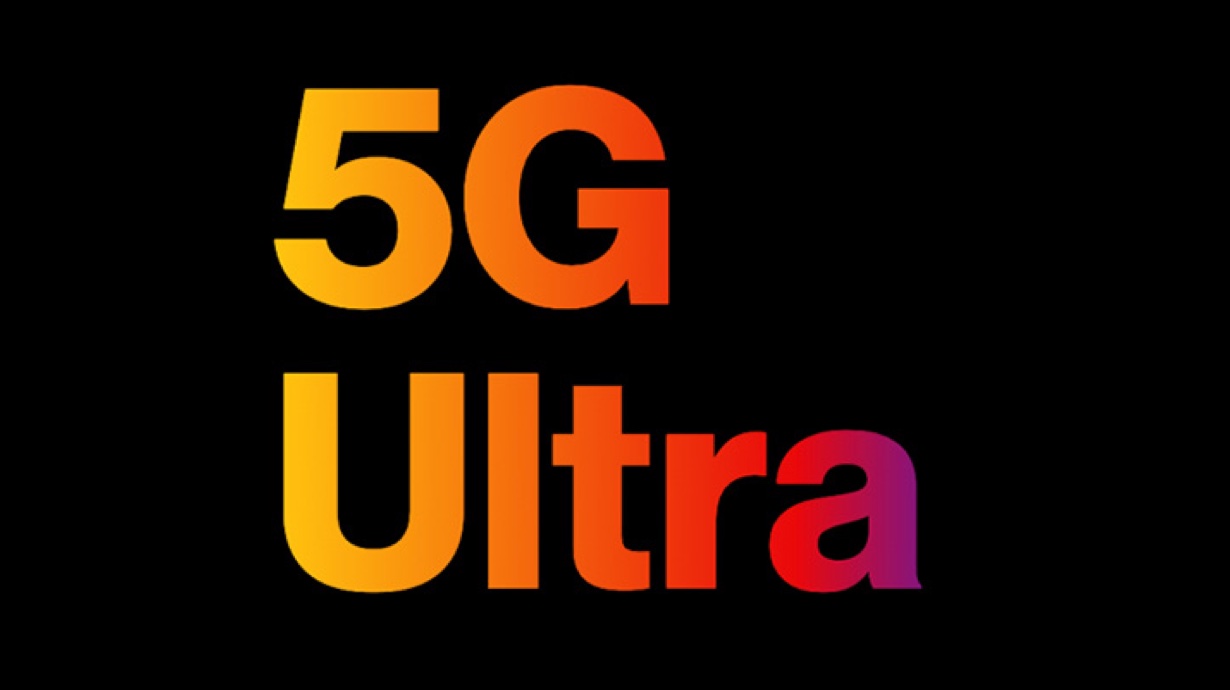
10. The Future of 5G-supported Cars
10. The Future of 5G-supported Cars
As 5G technology continues to evolve, the automotive industry is expected to benefit immensely from the blazing-fast speeds and ultra-low latency of this powerful mobile network. Here are some frequently asked questions about the future of 5G-supported cars and how they will transform the way we drive:
Q: What is 5G-supported car technology?
A: 5G-supported car technology integrates high-speed, low-latency networks with advanced driving features, connected services, in-car Wi-Fi, and other innovative capabilities.
Q: How will 5G affect the automotive industry?
A: With 5G connectivity, vehicles are expected to be more intelligent, safer, and more convenient for drivers and passengers. Cars will be able to communicate with other vehicles, traffic lights, and road infrastructure in real time, resulting in improved traffic flow and reduced accidents.
Q: What are the benefits of 5G-supported cars?
A: 5G-supported cars offer several benefits, including higher data transfer rates, super-fast network speeds, reduced latency, and more reliable connectivity. This technology will enable vehicles to share data in real time, resulting in safer driving conditions, better navigation, and enhanced entertainment experiences.
Q: When will 5G-supported cars be available?
A: Audi has announced a partnership with Verizon to bring 5G Ultra Wideband technology to its vehicles starting in select model-year 2024. Other car manufacturers are also exploring the possibilities of 5G-supported car technology and are expected to announce similar partnerships in the future.
Q: Is 5G-supported car technology safe?
A: Yes, 5G-supported car technology is safe. The network is designed to provide high-security standards that ensure customer privacy and data protection.
Q: Will 5G-supported cars be expensive?
A: It is expected that 5G-supported cars will come with a higher price tag, but the benefits of this technology are worth the investment. As the technology matures and becomes more widely adopted, the cost is expected to decrease over time.
Q: What are the long-term implications of 5G-supported cars?
A: 5G-supported cars hold incredible potential for transforming the way we drive, commute, and travel. They are the starting point for a future where our vehicles drive themselves, and we can work or relax while sitting in the back seat. The implications for the automotive industry, transport, and society at large are vast and exciting.
